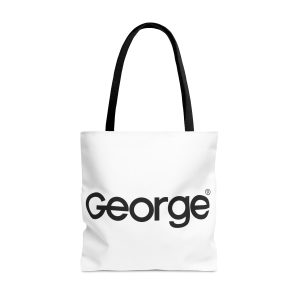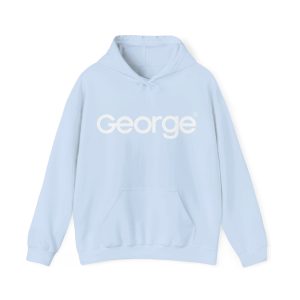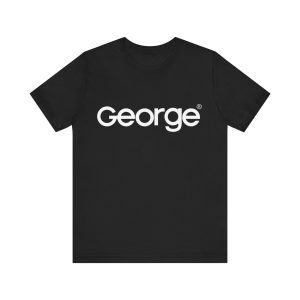
President Donald Trump is showcasing his cordial relationship with counterparts in the Middle East during the first major foreign trip of his second administration, but critics contend he is also capitulating to them, some of whom have weak human rights records and others who have direct ties to terrorism.
Trump has always adopted an untraditional approach to foreign policy, but his willingness to do away with conservative foreign policy orthodoxy and mix business with diplomacy has attracted pointed criticism.
Trump’s approach represents “an uncritical embrace” of Arab leaders, but Americans have beliefs and principles, according to Elliott Abrams, a senior fellow for Middle Eastern studies at the Council on Foreign Relations.
“We don’t like to see people tortured or jailed for a tweet the ruler doesn’t like,” Abrams, deputy national security adviser to former President George W. Bush, told the Washington Examiner. “We don’t like to see women abused and denied equal rights. We don’t like to see Gulf money supporting radical Islam and indeed hatred of everything we stand for. It isn’t interference in their internal affairs when we stand up for American principles. Why should we take a vow of silence just because they have money to throw around?”
Democrat Tom Cochran, an alumnus of former President Barack Obama‘s State Department, agreed, particularly amid criticism of the lack of separation between Trump’s business interests and those of the U.S. in the Middle East.
“In some circles, it might be called diplomacy,” Cochran told the Washington Examiner. “In others, it looks like diplomacy for sale.”
Trump’s Middle East policy was captured by his address to the U.S.-Saudi Investment Forum in Riyadh on Tuesday during which he repeated his desire to “end past conflicts and forge new partnerships,” “even if our differences may be profound.”
“Far too many American presidents have been afflicted with the notion that it’s our job to look into the souls of foreign leaders and use U.S. policy to dispense justice for their sins,” he told the crowd, which included the likes of Trump ally Elon Musk and Blackstone Group CEO Steve Schwarzman.

Republican strategist John Feehery was “delighted” by Trump’s foreign policy after the president campaigned on being a deal maker and “the American people don’t like war.”
“There’s a lot of neocon conservatives who love war, but they are not the majority of the country and they’re not the people who voted for Donald Trump for president,” Feehery told the Washington Examiner. “I would like to find ways to get peace in the Middle East so we can get our focus on China. I don’t want to go to a war with China either. I just want us to be able to focus on our competition with China.”
To that end, Trump signed a multitude of deals with Saudi Arabia in Riyadh on Tuesday after the kingdom rolled out the lavender carpet for the president, including F-15 fighter jet and Arabian horse escorts. At one stage, he quipped that he sought to increase a Saudi promise to invest $600 billion in the United States during his administration to $1 trillion.
“Are we doing a good job so far for America? They’re only putting in a trillion dollars,” Trump joked with reporters on Tuesday.

Saudi Crown Prince Mohammed bin Salman, who allegedly directed the murder of Washington Post columnist Jamal Khashoggi, made the $600 billion pledge to Trump shortly after the president’s inauguration in January. The White House underscored that the first tranche of deals that were announced on Tuesday, amounting to $283 billion, would strengthen “energy security, defense industry, technology leadership, and access to global infrastructure and critical minerals.”
Those deals include Saudi database management company DataVolt spending $20 billion on artificial intelligence data centers and energy infrastructure in the U.S. and the Saudi government spending $142 billion on defense equipment and services from more than a dozen U.S. companies. That spending includes air force advancement and space capabilities, air and missile defense, maritime and coastal security, border security and land forces modernization, and information and communication systems upgrades.
But, regardless of those deals, Trump told reporters traveling on Air Force One en route to his second stop of Doha, Qatar, on Wednesday that the prospect of extraditing Saudi intelligence officer Omar al Bayoumi over his alleged connections to the Sept. 11 terrorist attacks “didn’t come up” with the crown prince.
Those comments come after Trump announced at the U.S.-Saudi Investment Forum that he was removing sanctions on Syria at the request of the Saudi crown prince and Turkish President Recep Tayyip Erdogan. He then met with Syrian President Ahmed al Sharaa on the sidelines of the Gulf Cooperation Council on Wednesday before departing for Doha.
Trump’s meeting with Sharaa is a seismic shift in foreign policy, the first sit down between a U.S. president and a Syrian leader in 25 years and one with a former member of the U.S.’s terrorist watch list after Sharaa was detained by the U.S. from 2006 to 2011 for his involvement with al Qaeda in Iraq. In the years since, Sharaa has tried to distance himself from the terrorist organization before leading the insurgency against former Syrian dictator Bashar Assad last year.
“Tough guy. Strong past. Very strong past. Fighter,” Trump said on Air Force One on Wednesday.

A White House readout of the meeting added that Trump urged Sharaa to sign on to the Abraham Accords to normalize Syrian relations with Israel, deport all foreign terrorists from Syria, including Palestinians, and help the U.S. counter ISIS.
“President Al-Sharaa concluded with his hope that Syria would serve as a critical link in facilitating trade between east and west, and invited American companies to invest in Syrian oil and gas,” the White House said.
Sen. Lindsey Graham (R-SC) has raised concerns about Trump’s Syria policy, imploring the president to proceed with caution and advocating congressional oversight.
“Waiving congressionally passed sanctions is a complicated process,” Graham told Jewish Insider. “While I would like to empower the new players in Syria, it has to be done in a coordinated fashion with our allies — especially our friends in Israel — so that numerous security concerns can be addressed.”
Concerns have also been raised regarding reports Sharaa proposed that Trump build a Trump Tower in Damascus, Syria, which the president downplayed en route to Doha.
“No, that I haven’t heard,” he told reporters. “We’ll have to wait a little while until things calm down, a little while with the country.”
That report comes after this week’s criticism from Democrats and Republicans alike that Trump is considering accepting a luxury $400 million Boeing 747 from Qatar as a temporary Air Force One because of delays with Boeing for two replacement planes. Trump remains adamant that it is for the U.S. government, through the Defense Department, though he will eventually receive it through his presidential library.
“I thought it was a beautiful gesture. Now, there are those that say we shouldn’t be accepting gifts to the Defense Department, and I would say only a stupid person would say that. Why wouldn’t we do that?” Trump told Fox News en route to Riyadh on Monday. “It helps us out because we’ll have a relatively new plane instead of having 40-year-old planes. These planes are 40 years old and that’s not representative of our country.”
Trump signed a joint declaration and defense agreement with Qatari Emir Tamim bin Hamad al Thani in Doha on Wednesday that included a $1.2 trillion economic exchange, $243.5 billion of which was announced during the trip. The president was also present for Boeing CEO Kelly Ortberg signing a deal with Qatar Airways and GE Aerospace for up to 210 jets worth $96 billion.
“Get those planes out there. Get them out there,” Trump said.
The defense agreement included a $1 billion deal with Raytheon for counter-drone capabilities and a $2 billion one with General Atomics for the MQ-9B remotely piloted aircraft system, in addition to a statement of intent identifying $38 billion in possible investments for burden-sharing at Al-Udeid Air Base, the U.S.’s largest military installation in the Middle East, which is near Doha.



